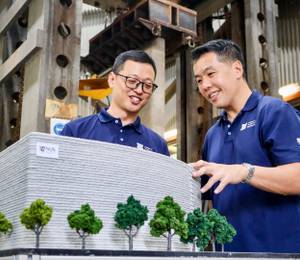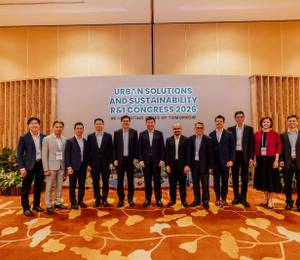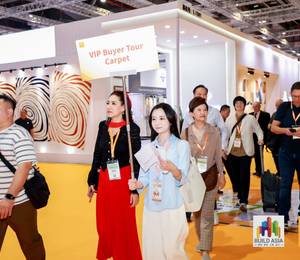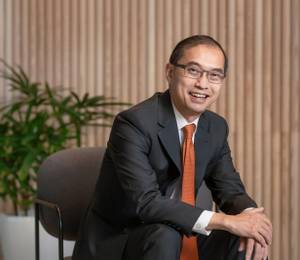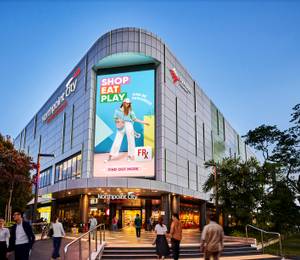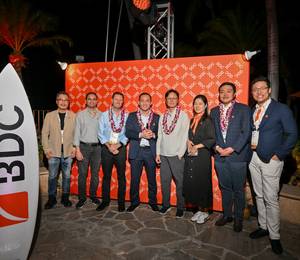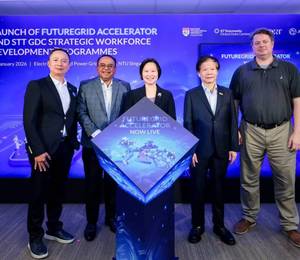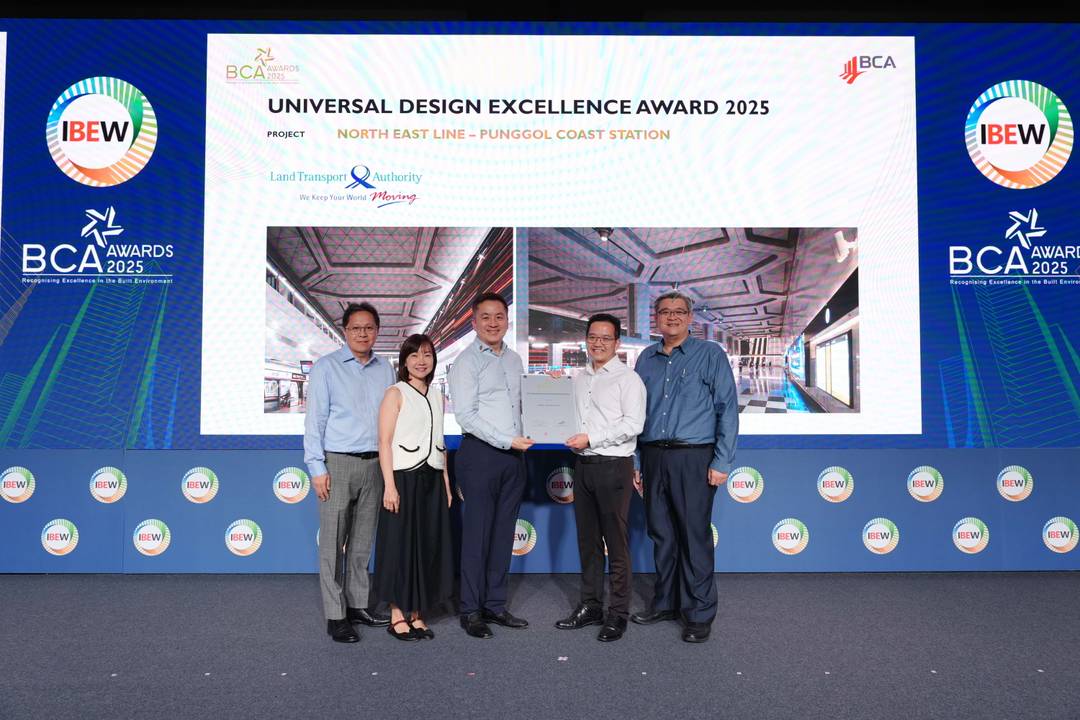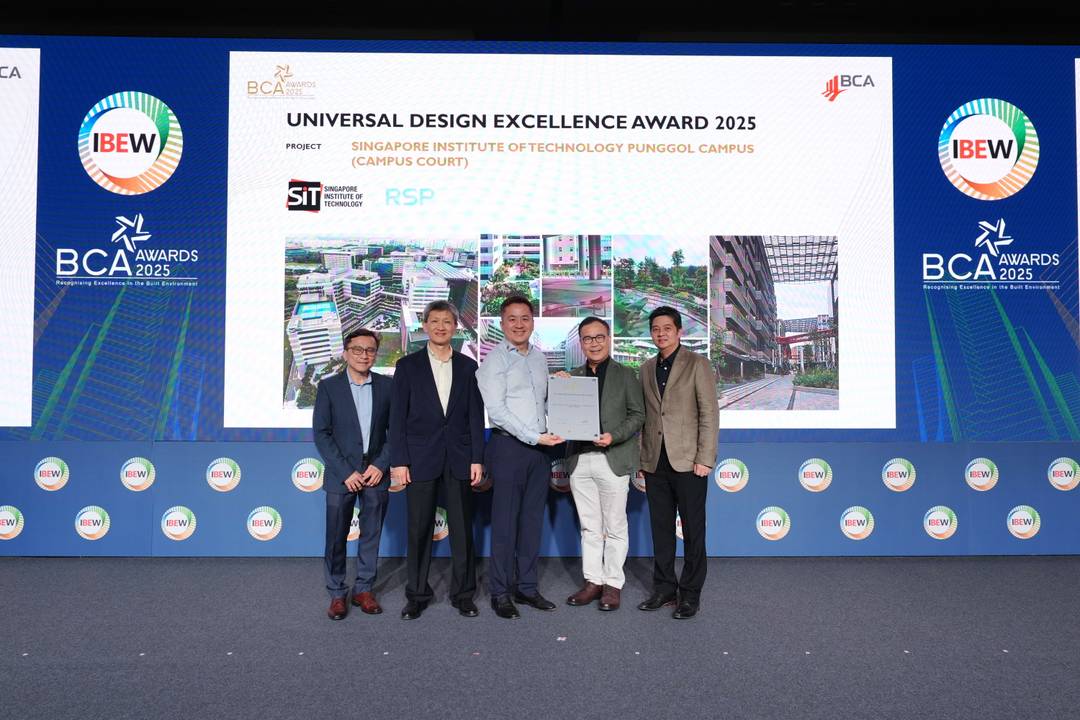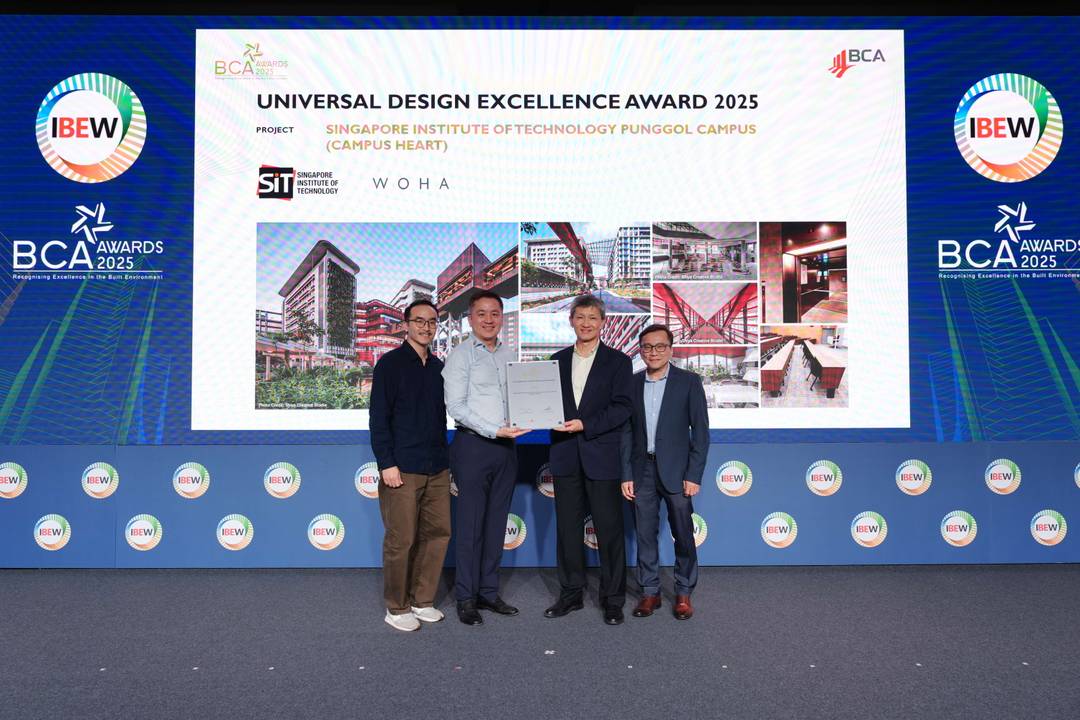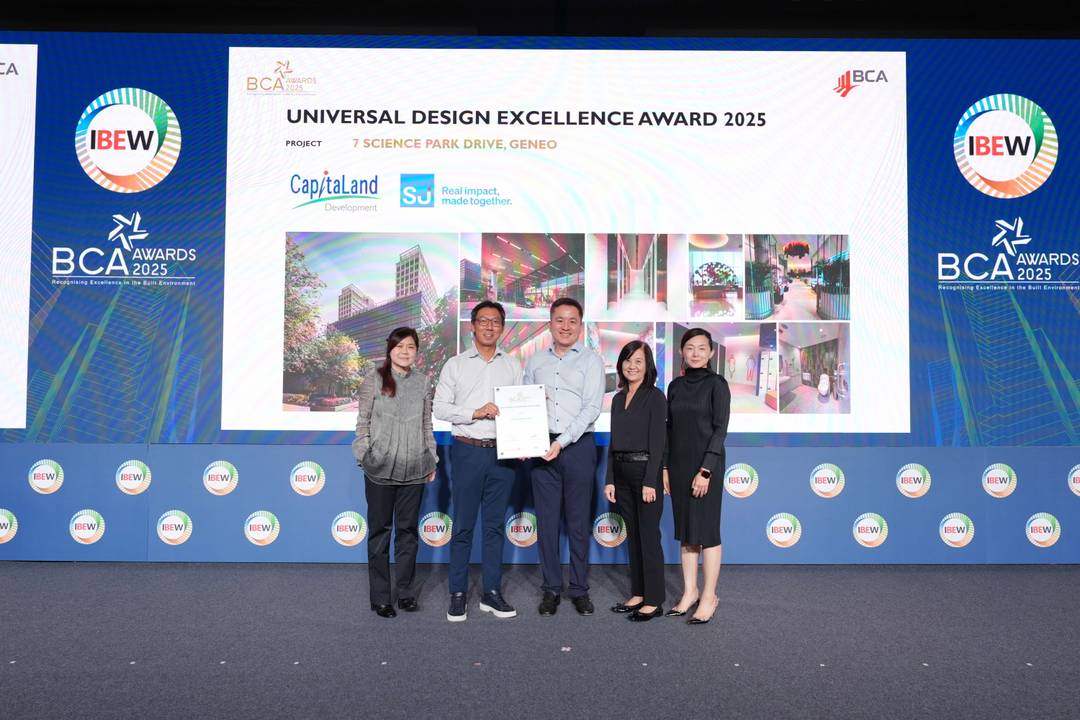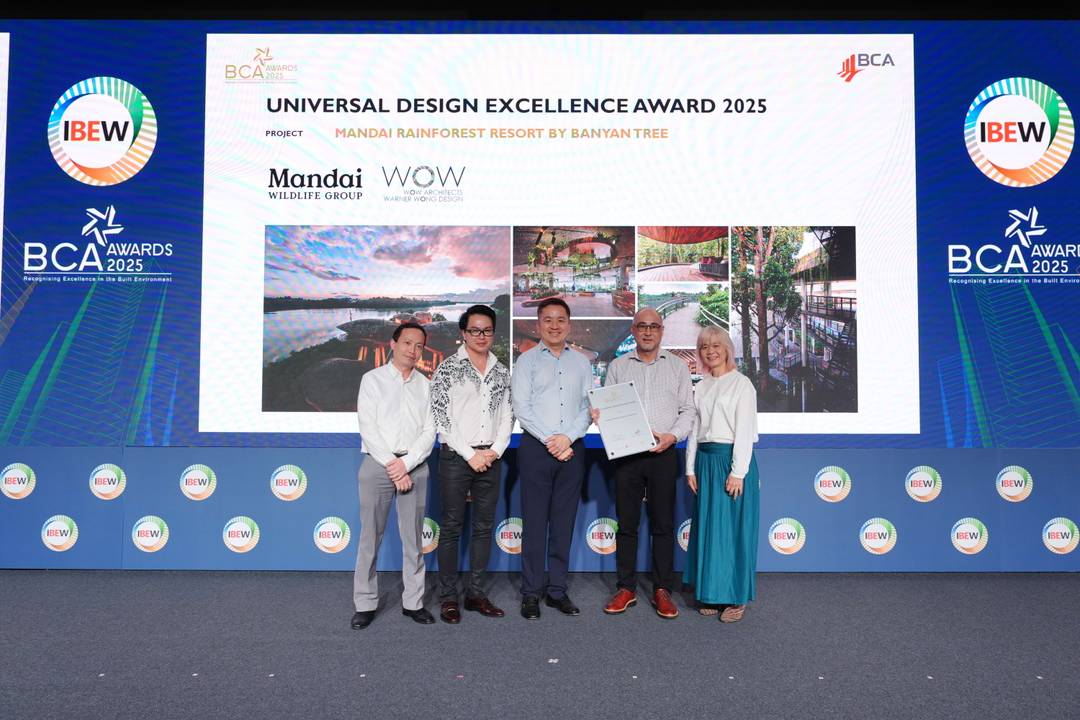The Building and Construction Authority (BCA) has conferred five outstanding projects with the Universal Design Excellence Award (UDEA) this year. These projects have gone the extra mile to incorporate user-centric designs, where everyone, regardless of age or ability, can work, play, and live together. They have set a new benchmark for creating a built environment that fosters an inclusive and integrated community life.
A notable awardee, Punggol Coast Station, is the first MRT station to receive this award in Singapore. As the new terminus of the North East Line (NEL), Punggol Coast Station exemplifies how modern public transport infrastructure can seamlessly integrate accessibility with social needs. With level entry points, there are no ramps or barriers to slow down wheelchair users, parents with strollers, or travellers with luggage. An intuitive wayfinding system that incorporates clear sightlines, pictograms for signage, strategic lighting, and colours helps commuters find their way quickly, while generous circulation spaces accommodate both fast-moving and slow-moving commuters.
The Passenger Service Centre is designed for inclusivity, featuring Hearing Enhancement Systems and lowered counters, ensuring assistance for hearing-impaired commuters and wheelchair users. Family-friendly amenities include a dedicated family toilet equipped with a diaper-changing station, as well as dual-height child and adult toilet seats and basins. Ambulant disabled cubicles in the common toilets feature grab bars for those with mobility difficulties.
“Over the years, the Land Transport Authority (LTA) consulted various social service agencies and enhanced the barrier-free features in stations in accordance with their needs. The Universal Design Excellence Award recognises our efforts to transform this space into a social infrastructure that enhances the commuting experience for everyone and anchors the station as the heart of the community. The universal design features in Punggol Coast Station align with our vision in making Singapore’s public transport system accessible and welcoming for all,” said Ar. Michael Ong, Qualified Person (LTA Architecture).
Two other winning projects are from SIT’s new campus, demonstrating excellence in educational space design. Named Campus Court and Campus Heart, the two campus plots are seamlessly connected within JTC’s Punggol Digital District (PDD), creating vibrant public-academic spaces that welcome everyone from students and staff to residents and families.
A standout feature in PDD is the 2km-long Collaboration Loop, a red bridge that doesn’t just link campus buildings; the bridge provides seamless, direct access to JTC’s business park, opening doors for academia to connect easily with industry.
The campus also incorporates thoughtfully designed elements, including wide pathways with innovative foldable seats, purpose-built nursing rooms, accessible toilets, and height-adjustable tables to cater to diverse needs.
At Campus Court, families and seniors can enjoy waterfront spaces linked to the Park Connector Network, while the auditorium offers wheelchair-friendly seating spaces. At Campus Heart, classrooms are all equipped with Hearing Enhancement System induction loops and have ample space for wheelchair users, ensuring no one is left out of the learning experience.
“Our campus design reflects SIT’s commitment to serving not only our students and staff, but also the wider Punggol community,” said Gerry Wee, Associate Vice President (Estates), SIT. “Working closely with partners such as JTC for the Collaboration Loop, and WOHA and RSP for inclusive design features, we have created a campus that is seamlessly integrated with PDD. This integration naturally brings together and fosters interactions between SIT students and staff, working professionals, and residents of all ages. This award affirms our efforts and inspires us to keep pushing boundaries in designing spaces that enable learning, innovation, and community bonding for everyone.”
The remaining two UDEA winners are Mandai Rainforest Resort by Banyan Tree and Geneo at 7 Science Park Drive, both showcasing how user-centric design generates more welcoming guest and workplace experiences.
Geneo applied Universal Design principles across its mixed-use development to serve business travellers, working professionals, and individuals with mobility needs through accessible and family-friendly guest rooms that exceeded minimum Code standards. Such voluntary efforts in private sector projects are encouraging and demonstrate how accessibility enhances user experience whilst creating commercial advantages.
BCA’s Director for the Building Plan and Universal Design Department, Ar. Tan Jwu Yih, emphasised the significance of this year’s awards. “Universal Design is central to building a safe, inclusive, and liveable Singapore. Its impact is most meaningful when experienced in everyday life—whether it’s a student moving easily across campus, a family navigating an MRT station, or a senior enjoying community spaces. By embedding these universal design principles one project and one district at a time, we are shaping an inclusive built environment which fosters community integration and enables active participation by users of all ages and abilities.”
